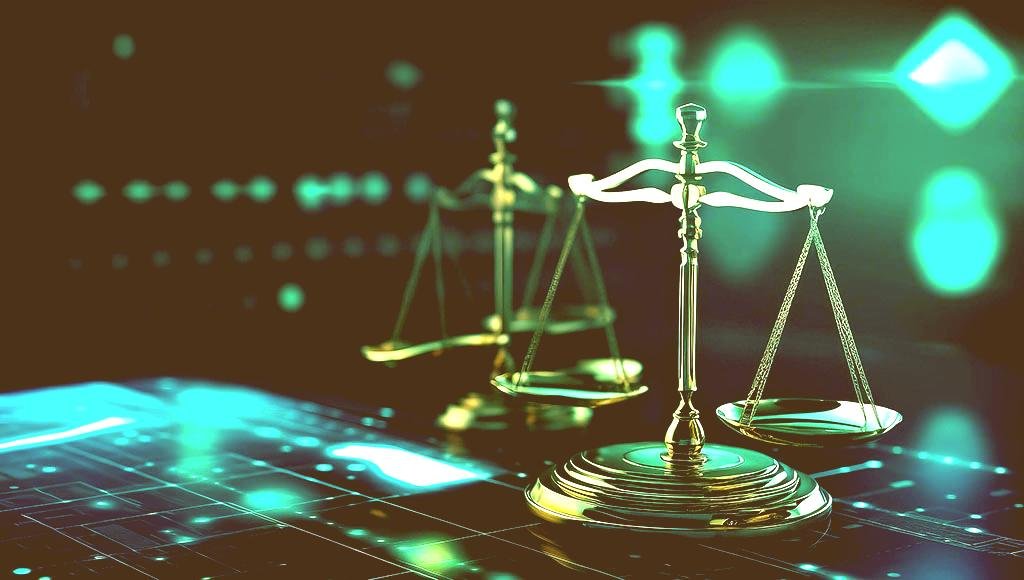The rule of law is frequently cited in political debate, and is a key topic monitored by those worried about democratic backsliding. But what is it, and why is it so important?
The rule of law is one of the fundamental principles underpinning constitutional democracies, and its importance is not seriously questioned in any modern democratic state. But like other constitutional principles, long-running debates exist about how it can most effectively be implemented.
This briefing explains the central concepts constituting the rule of law under three broad categories:
- Legality and legal certainty
- Legal equality and fundamental rights
- Judicial independence and access to justice
Why does the rule of law matter?
The rule of law prevents the abuse of state power, requires the law to be followed by all, and ensures that legal rights are fulfilled in practice. It also provides the means for various other core aspects of democracy to be safeguarded – for example, making certain that the laws made by parliament are enforced, and that fair conduct of elections can be guaranteed. More broadly, it underpins social functioning by providing fair and legitimate routes for disputes to be settled. And it supports stable economies and economic growth by upholding property rights, facilitating the elimination of corruption, and maintaining a business environment in which contracts are enforced, and international trade and investment can flourish. The rule of law alone is not sufficient to make a state democratic, but a state which does not observe it cannot be a healthy democracy.
As such, the rule of law has long been recognised as a fundamental part of the UK system. Many of its core aspects were established during the seventeenth century – particularly by the Bill of Rights 1689. Nineteenth-century scholar Albert Venn Dicey considered it, alongside parliamentary sovereignty, one of the ‘twin pillars’ of the constitution. More recently, Margaret Thatcher considered its observance central to Conservatism, arguing that ‘the institution of democracy alone is not enough. Liberty can only flourish under a rule of law’. And the 2001 Labour government recognised its importance as an existing principle in the Constitutional Reform Act 2005.
What does the rule of law cover?
Like other fundamental principles, the precise details of the rule of law are debated, but its central tenets are widely recognised. Lord (Tom) Bingham of Cornhill, a former Senior Law Lord, provided one well-known schema, on which the Venice Commission’s Rule of Law tools for assessing constitutional reforms are based. Another influential definition was given by then UN Secretary-General Kofi Annan, who defined the rule of law as:
…a principle of governance in which all persons, institutions and entities, public and private, including the State itself, are accountable to laws that are publicly promulgated, equally enforced and independently adjudicated, and which are consistent with international human rights norms and standards.
One: legality and legal certainty
- In its most basic sense, legality means that the state should act only within its powers. Laws should be made according to established rules and processes, rather than by diktat, and ministers and agents of the state must not exceed their powers. This idea chimes with recent Constitution Unit research which found that the public strongly supports politicians who play by the rules over those who get things done at the expense of breaking them.
- Concerns about legality underpin warnings about the use of ouster clauses, which preclude judicial review of certain decisions, such as that contained in the Judicial Review, Sentencing, and Courts Act 2022. By doing this, ouster clauses make it more difficult to ensure that officials have not exceeded their powers.
- Similar concerns underpinned criticisms of the use of guidance during the COVID-19 pandemic. The Joint Committee on Human Rights, among others, argued that blurred lines between law and guidance led to some police forces wrongly enforcing restrictions which were not law, as well as making it more difficult for people to understand what was legally required of them.
- Such concerns also drew on another fundamental aspect of the rule of law: the idea of legal certainty. The law must be clear, and publicly accessible, in order that citizens of the state can easily find out what their rights and obligations are. Related is the idea of legal stability over time. This does not require that the law be unchanging, but means that rapid large-scale alteration of the law, and the uncertainty it can create, should be avoided.
- For this reason, business and other groups have expressed concerns that the current Retained EU Law (Revocation and Reform) Bill could ‘unsettle’ areas of law, making it harder for them to understand what is required, and subjecting many areas of law to rapid change.
Two: legal equality and fundamental rights
- Central to the rule of law is the concept that citizens should be equally treated before the law, and that legal obligations and basic rights apply to all. This was famously summed up by Dicey as the idea that ‘no man is above the law’.
- Closely intertwined with this idea is the concept of fundamental rights. It is broadly accepted internationally that legislation which contravenes people’s fundamental rights cannot be consistent with the rule of law. The rule of law provides the culture of legality, and the independent legal institutions, necessary for these fundamental rights to be protected and upheld.
- The two ideas have long been closely related in the UK constitution, with early rights – including, for example, the right to fair trial – included in foundational rule of law documents such as Magna Carta and the Bill of Rights 1689.
- The UK has also been closely involved in the codification of more modern fundamental rights, in particular the European Convention on Human Rights (ECHR) which was advocated by Winston Churchill, and later incorporated into UK law by the Human Rights Act 1998. Such rights include freedom of speech, assembly and organisation, and individual liberties intended to ensure the protection of both majority and minority rights.
- Debates about how this rule of law principle should be implemented often concern the correct balance between rights protection and the freedom of state action, in particular to safeguard security and uphold public order. There is a long history of tensions between fundamental rights and security with regard to terrorism legislation, including that introduced in the wake of the 9/11 attacks. Similar questions have more recently been raised about the restrictions on peaceful protest introduced by the Police, Crime, Sentencing and Courts Act and proposed in the Public Order Bill.
Three: judicial independence and access to justice
- State observance of the rule of law requires the availability of effective and impartial dispute resolution mechanisms. This means that citizens must be able to access the courts, and be heard by independent judges, under a fair process. It requires that judges be appointed through a process that is not controlled by the government of the day, and have security of tenure. Judges are not accountable to politicians for their rulings – hence, judges in the UK may voluntarily attend parliamentary committees to discuss the administration of justice, but do so on the understanding that they will not be questioned about particular cases. Flawed judgments can be challenged by legal routes, usually an appeal to a higher court.
- Threats to judicial independence are often considered a particularly worrying sign of democratic backsliding. The removal of an independent judiciary makes it more difficult for citizens to defend themselves against unfair or disproportionate state action, and facilitates the erosion of other facets of democracy – for example, making it more difficult to challenge unfair electoral practices.
- Poland and Hungary are two well-known examples of this. The Polish government has systematically reduced judicial independence via changes to the appointments system and disciplinary arrangements for judges; in Hungary, judicial security of tenure was violated by lowering the retirement age to force out some judges, and later new courts were established to take over some of the most politically sensitive cases. The most extreme attacks on judicial independence in other states have seen judges imprisoned in response to their rulings.
- However, independence can also be threatened by less obvious means – in particular rhetoric which pressurises judges to deliver certain rulings, or which aims to reduce public confidence in the judiciary. Hence, Donald Trump was criticised for attacking a ‘so-called judge’ who struck down one of his executive orders as unconstitutional.
- It is for this reason that the Lord Chancellor and other ministers have a statutory duty to ‘uphold the continued independence of the judiciary’ in the UK. In 2016, then Lord Chancellor Liz Truss was criticised for being seen to ignore this duty after some newspapers attacked High Court judges, including as ‘Enemies of the People’.
- Access to justice, meanwhile, can particularly be threatened by administrative reforms. Deep cuts to legal aid were long criticised – including by the House of Commons Justice Committee – for making the courts less accessible to low-income groups.
How can the rule of law be upheld?
All parts of society have a part to play in upholding the rule of law. Those working in the UK’s democratic and independent institutions have a responsibility to promote public trust in the rule of law, while the public’s commitment to this fundamental principle is essential for it to be maintained in the long term.
Politicians have a particularly important role to play. Ministers bear responsibility for upholding the rule of law when they develop their policy goals, given their power over state force and funding. But under the UK’s political constitution MPs have a great deal of responsibility too. Parliament is the final decision-making body for shaping and passing laws. It passes budgets that set funding levels for the justice system, and holds the executive to account between elections. This gives it the ultimate responsibility for upholding the principles on which the UK constitution rests, including the rule of law.







